- Home
- Nancy Buckingham
Valley of the Ravens Page 5
Valley of the Ravens Read online
Page 5
“How dare you say that about my sister!” I exclaimed.
“What’ll ‘ee do about it then, miss? Tell Maister I were rude to ‘ee, like ‘ee hinted about Thomas in the carriage t’other day? Didn’t think he’d hear, did ‘ee? But he’ve got sharp ears, my Thomas.”
The sheer venom in her voice astonished me. I hadn’t imagined that the Tassells would still be so bitter toward my sister after all this time.
“I was speaking as one woman to another, Batsy,” I said peaceably. “I would not consider going to Mr. Jerome about anything you say to me. I merely wanted to talk with you to see if you could help remove the slur upon my sister’s name.”
“And never ‘ee mind about our Ned, I s’pose?”
“Perhaps Ned didn’t steal the wages money, either,” I suggested, but with little conviction.
Batsy regarded me with scorn. “Why doan’t ‘ee face what be plain and simple, miss, same as everybody knows? Our Ned took that money, all right. Miss Felicity asked him to. Him being so besotted like with Miss Felicity, the poor foolish lad couldn’t help hisself. And her took the necklit—though I’d wager a sovereign our Ned knew nothing of it till they were clean away, and too late to make her give it back.”
“No, no.” I protested. “You are mistaken, Batsy. Somehow, I’m going to prove it.”
I broke off abruptly as the butler came into the kitchen. Metherell’s florid face registered his disapproval at seeing me there.
“Miss Sarah. Is there something wrong?”
Batsy at once resumed her pastrymaking, ignoring us both. I stammered weakly, “No, nothing is wrong, Metherell. I was just talking to Batsy, that’s all. I’m going now.”
I made my exit without glancing back, but I could sense that both of them were staring after me. As I reached the hall, one of the footmen was crossing to open the front door. I had known that Nadine’s brother Oscar was expected home from London this afternoon, but though I looked forward with pleasure to seeing him again, I could have done without the need to greet him at this precise moment.
He came briskly into the hall, then stopped in his tracks. His eyes lit up with interest and warmth.
“Sarah! By Jove, there’s no mistaking who you are. Hang me if you mightn’t be Felicity all over again. This is the pleasantest welcome a fellow could have.”
Oscar Medwyn was the epitome of casual elegance, with handsome features and a lithe figure that did full justice to his London tailoring. He had his sister’s coloring, but in more muted tones, his hair being more chestnut than copper, his eyes hazel rather than a golden-green. If I remembered rightly, he was some three years older than Nadine, which would put him somewhere in his early thirties. He had come to live at Farracombe at the same time as his sister and aunt, and being a child I had never questioned that as being in any way unusual. I had always liked Oscar, because he frequently took notice of me and made me laugh. Amazingly, he had even found favor with Uncle Joshua, who had readily created a position for him in the estate offices.
Oscar came closer, until he was standing over me, smiling down into my eyes.
“My word, Sarah,” he said, smoothing his moustache. “Haven’t you turned out a little peach.”
I felt a bubble of excitement. My father’s ill-health had obliged me to lead a restricted life, and it was a long time since any man had paid me such a compliment. I deplored the flush which I could feel sweeping up from my neck, because I longed to appear sophisticated in Oscar Medwyn’s eyes.
“How do you do, Oscar?”
He threw out his arms in mock despair. “How do you do, Oscar! Is that the best you can manage, my sweet pretty Sarah?”
“What would you like me to say?” I parried.
“You might say how delighted it makes you to see me once more, and perhaps even swoon a little. You might, in short, give some sign of pleasure, Sarah.”
“Naturally I am pleased to see you, Oscar.”
“Then I am a happy man.” He put an arm around my shoulder and guided me into the small drawing room. “You will bring a touch of joie de vivre to Farracombe Court, pretty Sarah. It has become an unbearably dull place these past few years.”
I became serious. “I was shocked to learn about your sister’s accident.”
“Yes, poor old Nadine. She takes it well though, doesn’t she? If something like that happened to me, I’d be completely done for, I can tell you.”
“I think Nadine is very brave.”
The drawing room was empty. Oscar closed the door behind us.
“Sit down, Sarah, and tell me all about yourself. How did you contrive to grow so beautiful since you’ve been away? You have those fascinating Lefevre eyes, of course. Such an incredible blue.”
“But much paler in my case,” I pointed out. “It was Felicity who inherited the real Lefevre coloring.”
He acknowledged the truth of that with a judicial nod. “Your sister was a lovely girl, but she didn’t possess your subtlety, Sarah. You are more—more of a challenge to a man. I say, shall we ring for some tea?”
I shook my head. “Not for me, thank you, Oscar. I have promised to go riding with Ginny, and she will be waiting for me. Besides, I’m sure you should go straight up to see your sister, rather than sit here chatting with me.”
“Yes, I suppose you’re right,” he said with a shrug. “And there will be heaps of time for us to have pleasant little tête-à-têtes.”
I ascended the stairs with a lighter tread than would have been the case ten minutes before. Oscar had that effect upon one. He was vain and shallow, I knew, but somehow very likable despite that.
Ginny was waiting at the head of the staircase, leaning over the balustrade, watching me with solemn eyes. She already had on her blue habit.
“I saw you talking to Oscar,” she said reproachfully. “I thought you had changed your mind about coming out with me this afternoon.”
“I wouldn’t do that, Ginny,” I assured her. “But it was only polite to stay and chat with Oscar a little while.”
Ginny followed me into my bedroom. “Do you find him attractive, Sarah?”
“Oscar? Why do you ask?”
“Well, he’s very good-looking, isn’t he? It would be a most suitable match, I should think.”
I shook my head, amused by her directness. “I find Oscar very agreeable company, Ginny. But that is all.”
How could I explain to her that such a man would never be able to win my heart, even if he should wish to? Perhaps it was a reflection of my own serious nature, but the qualities I would look for in a husband would have to be of greater worth than the surface charm which, I suspected, was all Oscar Medwyn had to offer.
Crossing the courtyard with Ginny ten minutes later on our way to the stable block, I had a curious feeling of being watched. I turned instinctively, before I could stop myself. As I should have realized, it was Uncle Joshua at his window, critically observing every coming and going from the house. This was something to which I should have to get accustomed.
Farther back in the shadows of the room, I thought I saw a movement. Probably, I told myself, it was only Rudd. But I could not dismiss the feeling that the person with Uncle Joshua was Jerome, and that they were discussing me.
* * * *
Each day, in the hour before luncheon, Nadine liked to hold court in her room. We would sip sherry wine, and gossip. Sometimes neighbors called upon her, but otherwise there would be Thirza, Ginny and I, and Oscar now that he was home. Jerome rarely put in an appearance.
Today there were no visitors, and the conversation drifted to Uncle Joshua’s birthday in two days’ time. It was to be celebrated with a family dinner party, since he no longer enjoyed the grander social occasions.
Nadine demanded that we admire her gift for him—a little fox-head snuffbox to add to his collection of antique silver. Thirza, likewise, had purchased a Georgian silver paper knife. Oscar had ordered a dozen bottles of vintage port which he confidently predicted the “old gent
” would find greatly to his taste.
Nobody asked me what gift I would be giving, for which I was grateful, since I had forgotten the date of Uncle Joshua’s anniversary in the five years I'd been away. Neither did anyone trouble to inquire about Ginny’s present, and I surmised that she was a little disappointed. When we left Nadine’s room I took my chance to question her on this matter. Ginny at once assumed an air of mystery, and I had to coax her.
“Oh, very well, Sarah,” she said at last. “I will show you. But don’t forget, it’s a secret.”
I followed her to her room. Carefully closing the door, she went to the hinged window seat and lifted out a cardboard box. Nestling in tissue paper was a gentleman’s smoking cap in royal-blue velvet, with a charming fleur-de-lis design in gold thread.
“I did the embroidery myself,” she said proudly. “Do you think Papa will like it?”
“Oh, I am sure he will, Ginny—he’ll treasure it greatly. What beautiful stitching!”
She seemed overjoyed by my enthusiasm, and a lump rose in my throat. Poor child, she was so pathetically eager to win her father’s approval. I felt an inward blaze of anger against Uncle Joshua for denying his daughter the love which was surely her birthright.
“I suppose,” I said, trying to conceal my reluctance from Ginny, “that I should buy your papa a present for his birthday. I wonder what would be suitable? Perhaps a pipe? He is fond of smoking, and it would go with the cap. It might be wise, though, to ask a gentleman to choose it.”
“Well, there’s no difficulty about that!” Ginny gave a little giggle. “Mr. Smallbridge would be delighted to oblige. I think he’s rather sweet on you, Sarah. He keeps saying what a beautiful and intelligent young lady you are.”
“Oh dear. Then perhaps I should not commission a favor of him. It will only encourage him.”
“Don’t be silly,” said Ginny. “I’ll ask Mr. Small-bridge tomorrow.
* * * *
Ginny was in a high state of nervousness on the morning of Uncle Joshua’s birthday. Soon after breakfast we presented ourselves at the door of his room, and Rudd admitted us.
“I have come to wish you a happy birthday, Papa,” Ginny said diffidently, as she advanced toward him.
Grudgingly, Uncle Joshua turned his white-whiskered cheek for her to kiss.
“Happy birthday indeed! I am past the age for such things, child.” He let out a long, heavy sigh. “When one is an invalid, and all alone ...”
But you are not alone, I thought furiously. You have a dutiful son and an affectionate little daughter. You should consider yourself a fortunate man. I fervently prayed that he would receive Ginny’s gift with some show of pleasure, but my hopes were dashed.
“A smoking cap!” he observed. “I wonder what gave you that curious idea?”
Ginny’s face fell, and she stammered, “I—I thought gentlemen of your age often wore them, Papa. I have seen them in pictures.”
He seemed on the verge of another sarcastic remark, but I forestalled him.
“Isn’t Ginny clever, Uncle? She designed the pattern and did the embroidery entirely on her own. I am sure you will greatly value her present.”
Our eyes met, the brilliant gentian of his irises seeming to flare as he tried to wither me. But I held his gaze steadily.
“Hm, perhaps I shall,” he muttered after a moment. “And why are you here, Sarah?”
“To wish you a happy birthday, and to bring you this.”
He took the package from me and at once placed it on the table beside him, muttering curt thanks.
“Aren’t you going to open it, Uncle?”
“There’s no need. I can feel it’s a pipe.”
Ginny was very silent as we left her father’s room. As for myself, I was seething with fury. At that moment I hated Uncle Joshua as I had never hated him before. Not because he had spurned my present, which, after all, had only been given him as lip service to convention. But how could he have been so unfeeling toward Ginny?
That evening, although it was only a family party, we dined in full splendor, Metherell and three footmen in attendance. The long table gleamed with silver and glass, lit by a multi-branched candelabrum at each end.
Nadine looked supremely lovely in a gown of peacock-blue satin, with diamonds sparkling at her throat and in the soft curls of her coppery hair. Oscar looked striking, too, in evening dress of the very latest mode, with a velvet collar and buttons engraved with his monogram. Jerome’s appearance was more restrained, and in my eyes he made a more dignified figure even than his father, who was dressed in somber, old-fashioned garb.
Batsy Tassell sent up a splendid birthday dinner of numerous delectable dishes, which Uncle Joshua, presiding at the head of the table, sampled with benign approval. The meal passed off in the easiest atmosphere I had yet known since my return to Farracombe.
When it was time for the ladies to withdraw, Jerome carried Nadine through to the salon, placing her gently upon a brocade-covered sofa near the fire and making sure that she was comfortable.
“Now remember, darling, this is a family celebration,” she admonished, smiling up at him fondly. “You men mustn’t be too long over your wine.”
“We will join you very shortly,” he promised. “Allow us ten minutes to sample Oscar’s port, which he insists we broach this evening.”
To the onlooker, they made a touching picture of marital devotion—with that added quality of closeness which is brought about by shared tragedy. Yet, watching Nadine and Jerome, it struck me with a flash of insight that this was not a true picture. Somewhere beneath the surface there was a hint of falsity.
Were they, I wondered, only acting the part of devoted husband and adoring wife in order to conceal their real relationship from other people? In private, did they argue and quarrel, or perhaps show indifference to one another? Somehow, I did not think so. I felt convinced that a powerful bond linked these two, but equally, I was convinced that it was not a bond of love.
What was it, then?
Lost in thought, I took the coffee that the footman brought around, stirring my cup absently. It took an effort to give Ginny my attention when she spoke to me.
“I forgot to tell you, Sarah—Mr. Smallbridge was ever so pleased with himself this morning. He has been offered a living of his own. A parish in Birmingham.”
“Really. How splendid for him. He made no mention of it when I was speaking to him yesterday. Has he only just heard?”
“Yes. He received a letter from the bishop this morning.”
Thirza, whom I had noticed taking freely of the wine at dinner, gave a high-pitched little laugh that was almost a giggle.
“It is difficult to imagine Horace Smallbridge with a flock of his own to care for. He seems such a diffident young man.”
“He is too gauche for words,” said Nadine lazily. “Not that he hasn’t been useful as a tutor for Ginny—we must give the poor man credit for that. But now, I suppose, we shall have to look around for someone to replace him. How tiresome!”
“Oh, Nadine, must you?” implored Ginny. “I don’t really need a tutor anymore. I’ve never enjoyed lessons with Mr. Smallbridge. He doesn’t even try to make things interesting like Finchy used to do.”
Nadine gave her young sister-in-law a smiling shake of the head. “Don’t be silly, of course you must have a tutor. Whatever next. Perhaps we can get the new curate to take over when he arrives.”
A few minutes later the men came in to join us, Uncle Joshua using a silver-headed cane and leaning heavily on Jerome’s arm.
“I am too old for dinner parties,” he grumbled, as he subsided into an armchair with a noisy sigh. “I shall go up to my room very soon.”
“Nonsense, Father!” protested Nadine. “Of course you must stay down here with us. We have all been looking forward to your birthday—we see so little of you these days.”
His blue eyes flashed her a glance that was almost affectionate.
At first the conversation
in the room was general, but presently, I had the opportunity for a quiet word with Jerome, who had retreated to the farther end of the salon and was idly leafing through a portfolio of music on the piano.
“Ginny has just been telling us,” I began, “that Mr. Smallbridge will be leaving Farracombe shortly.”
“So it’s definite, is it? He mentioned the possibility a week or two ago, but he asked me to say nothing till the appointment had been confirmed.”
“Jerome, I was wondering—Ginny will be needing a new tutor, and I have so little to occupy me. Let me make myself useful.”
“You, Sarah?”
“Why not? Perhaps it is immodest of me to say so, but I believe I have a certain talent in that direction. At the school I attended after we left here I was often asked to coach the younger children.”
“My dear Sarah, I am convinced you would be an excellent tutor. But you must not feel under any obligation to make yourself useful, as you put it. I have no doubt we shall find someone to fill the breach after Smallbridge goes.”
I glanced around swiftly to assure myself that no one else was within hearing.
“Jerome, I believe that I could be of real help to Ginny. She is a strange child in some ways—you told me yourself that her head is full of superstitious fancies. I feel she needs sympathetic understanding, and I think I am equipped to offer her this, if only because I am nearer her own age. I believe she trusts me.”
He was watching me as I spoke, a faint smile on his lips. But in the depths of his eyes, those deep-blue Lefevre eyes, there was a look of sadness that I had noticed repeatedly these last few days. I wondered what it was that troubled him.
“Please, Jerome,” I begged, “don’t refuse me this chance to help Ginny.”
“Refuse you, Sarah? That would be difficult, I think.” He looked across the room and caught his young sister’s eye, beckoning her over.

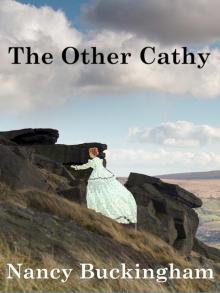 The Other Cathy
The Other Cathy Design for Murder
Design for Murder Valley of the Ravens
Valley of the Ravens The October Cabaret
The October Cabaret Model Murder
Model Murder Murder in the Cotswolds
Murder in the Cotswolds Deadly Deceit
Deadly Deceit Return to Vienna
Return to Vienna Shroud of Silence
Shroud of Silence The Silver Castle
The Silver Castle A Cotswolds Legacy
A Cotswolds Legacy Marianna
Marianna Cold Coffin
Cold Coffin Kiss of Hot Sun
Kiss of Hot Sun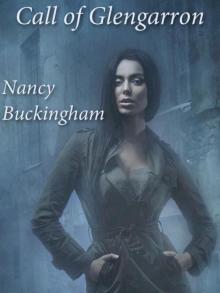 Call of Glengarron
Call of Glengarron Quest for Alexis
Quest for Alexis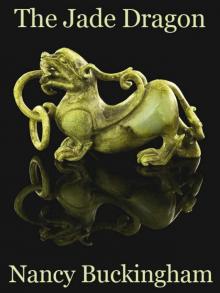 The Jade Dragon
The Jade Dragon